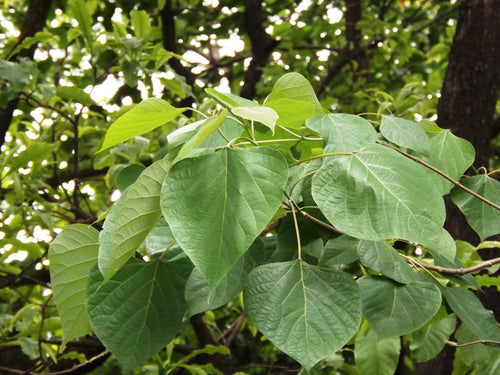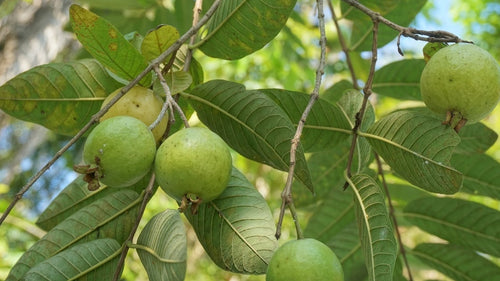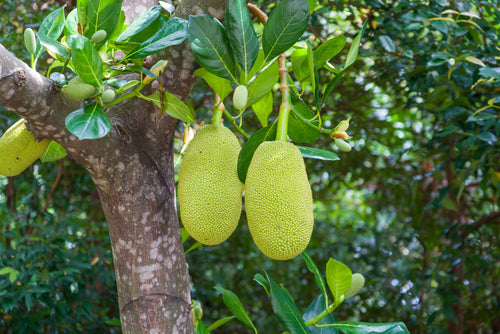InfoBeans Forest of Connection: Celebrating Birthdays, Planting Dreams
InfoBeans, a leading provider of IT consulting and software development services, takes its commitment to sustainability beyond the digital world with Read more
Project Update 2
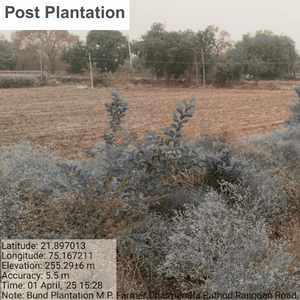
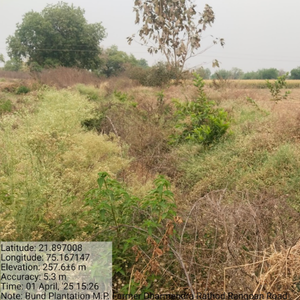
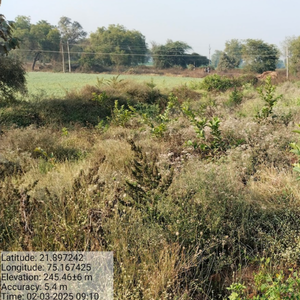
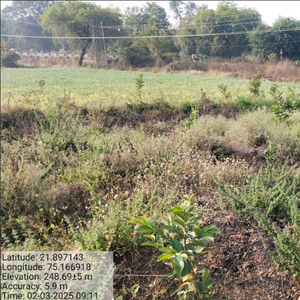
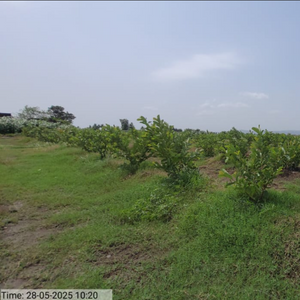
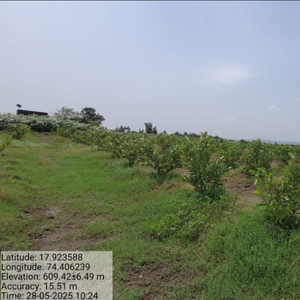
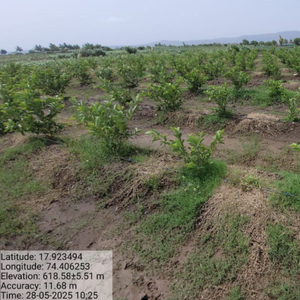
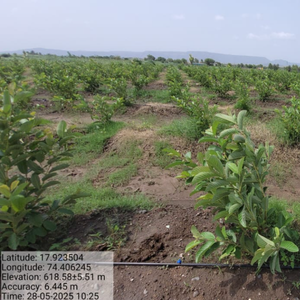
Project Update 1
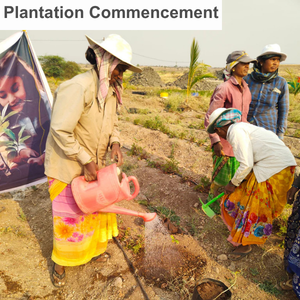
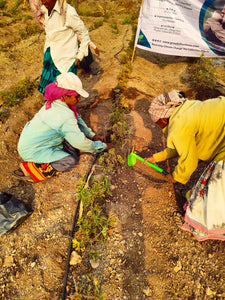
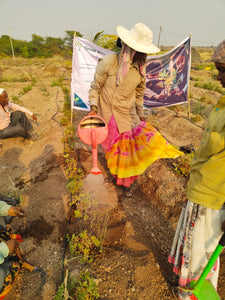

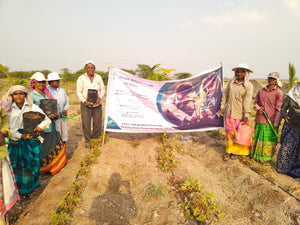
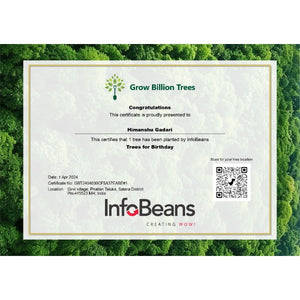

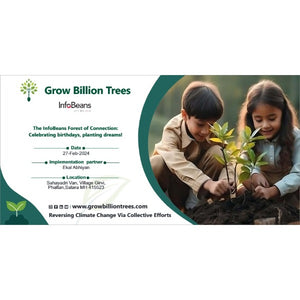
Digital Forest
Forest with 2,115 Trees planned
Want to plant Trees for Birthday Celebration now?
Plant a Tree @ 299InfoBeans Forest of Connection: Celebrating Birthdays, Planting Dreams
InfoBeans, a leading provider of IT consulting and software development services, takes its commitment to sustainability beyond the digital world with its tree plantation initiative rooted in the agroforest concept. This initiative follows a quarterly plantation approach, where trees are planted every quarter to celebrate the birthdays of InfoBeans team members. Under the theme "Celebrating Birthdays, Planting Dreams," each tree becomes more than just a sapling—it stands as a living symbol of growth, resilience, and hope. By linking these personal milestones with meaningful environmental action, InfoBeans fosters a strong culture of ecological responsibility within the organisation. Each tree serves as a living symbol of growth, resilience, and hope—values that reflect both the natural world and the ethos of the workplace.
The initiative is firmly embedded in the principles of agroforestry, which delivers significant benefits to local farmers. Agroforestry practices improve livelihoods by enhancing income diversification through the integration of trees with crops or livestock. This approach not only provides additional revenue streams, such as fruits, timber, and fodder, but also reduces farming costs by improving soil fertility and minimizing the need for chemical fertilizers. The planted trees help in water retention, reduce soil erosion, and create a healthier ecosystem, enabling farmers to achieve long-term sustainability and resilience against climate change impacts.
Through this initiative, InfoBeans not only contributes to environmental preservation but also uplifts farming communities, ensuring that its efforts create a meaningful and lasting impact on both people and the planet.
Project Planning & Execution
No of Trees: A total of 2,115 trees have been planted so far, with the count steadily increasing as the initiative continues.
-
Rajpur, Barwani, Madhya Pradesh: 1408 trees and ongoing.
-
Girvi, Phaltan, District Satara: 707 trees.
Selected Plantation Location:
-
Rajpur, Barwani, Madhya Pradesh - 451447
-
Girvi, Phaltan, District Satara – 415523
Google Earth Link:
-
Rajpur, Barwani, Madhya Pradesh - 451447 - https://earth.google.com/earth/d/1MdAvUp2S0Fq45Fya8GihL-C1BVFOKg0t?usp=sharing
-
Girvi, Phaltan, District Satara – 415523 -
Plantation Duration: Commenced on 13th February 2024 and is a part of a continuous quarterly plantation initiative.
-
Rajpur, Barwani, Madhya Pradesh: 1st July 2024 and ongoing.
-
Girvi, Phaltan, District Satara: 13th February 2024 - 5th April 2024.
Species Selection & Its Benefits:
The initiative prioritises the planting of native and climate-resilient tree species to ensure long-term ecological sustainability and maximise benefits for local communities. Species selection is carried out in consultation with farmers, aligning with both environmental goals and the socio-economic needs of the region. This collaborative approach ensures high survival rates, integration with existing farming systems, and enhanced community ownership.
The selected species—Teak, Guava, Custard Apple, Jackfruit, and Nimbu (Lemon)—were chosen for their adaptability, low maintenance requirements, and economic potential. Teak offers long-term value through sustainable timber harvesting, while fruit-bearing trees like
Guava, Custard Apple, Jackfruit, and Lemon contribute to food security and regular earnings. Guava and Custard Apple are especially valuable for their drought tolerance and early fruiting, making them suitable for regions facing erratic rainfall.
Jackfruit enhances soil fertility and supports biodiversity by attracting pollinators, while Lemon trees offer frequent yields and integrate well with intercropping systems.
Together, these species improve soil health, water retention, and microclimatic conditions on the farms, reducing the need for chemical inputs and strengthening overall farm resilience.
This farmer-centric, ecologically balanced approach reflects InfoBeans’s commitment to inclusive and sustainable development, creating long-term environmental and livelihood benefits rooted in nature-based solutions.
Beneficiaries Details
|
SN |
Farmer Name |
Google Location |
Village Name |
Plot Size |
Teak |
Guava |
Custard Apple |
Jack Fruit |
Nimbu |
|
1 |
Dharmendra |
Rajpur |
3 Acre |
100 |
688 |
300 |
20 |
300 |
|
|
2 |
Amit Saha |
Phaltan |
2 Acre |
0 |
707 |
0 |
0 |
0 |
Planting Methodology and Its Advantages
Agroforestry: Infobean’s tree plantation initiative is rooted in the agroforestry concept, a sustainable land management practice that not only benefits the environment but also provides additional income for farmers. By integrating trees with agricultural landscapes, farmers can generate revenue through fruit production, reduce dependency on chemical inputs, and diversify their income streams, ensuring financial resilience for rural communities. Agroforestry enhances soil fertility, improves water retention, and prevents erosion, contributing to long-term ecological stability. It supports biodiversity, promotes natural pest control, and creates favourable microclimates that enhance agricultural productivity by regulating temperature, reducing wind impact, and providing shade.
As part of its global environmental mission, InfoBeans recognizes agroforestry as a powerful strategy for carbon sequestration, ecological restoration, and sustainable land management. This approach reflects the organization’s deep-rooted commitment to healing the planet, promoting climate resilience, and empowering communities through nature-based solutions. By integrating tree plantations with agricultural landscapes, InfoBeans actively supports a greener, healthier Earth for current and future generations.
Advantages of Agroforestry
-
Increased Farmer Incomes: This approach helps in increasing the farmer’s income by as much as 3 times. Farmers benefit from diversified income sources, lifting economic resilience.
-
Improved Livelihoods: Agroforestry enhances farmers' resilience to economic and climate-related shocks by creating more sustainable and diversified farming systems.
-
Biodiversity Promotion: Agroforestry supports a diverse range of plants and animals, creating habitats for wildlife and improving ecosystem health.
-
Environmental Sustainability: This model reduces carbon emissions and promotes sustainable land management, aligning with SDG 13 (Climate Action) and SDG 15 (Life on Land).
-
Food Security: Agroforestry enhances agricultural productivity and food availability by integrating fruit-bearing trees with crops, contributing to SDG 2 (Zero Hunger).
-
Carbon Sequestration: Trees planted through agroforestry absorb carbon dioxide, helping reduce greenhouse gas emissions.
-
Climate Resilience: Agroforestry helps mitigate climate change impacts by improving land productivity and fostering biodiversity.
- Improved Soil and Water Management: Trees enhance soil fertility, reduce erosion, and increase water retention, resulting in more resilient farming
Conclusion Elements
Impact
Direct Impact
|
Parameters |
Values |
References |
|
No. of Trees Planted |
2,115 |
|
|
Green Cover (Acres) |
5 |
|
|
Fruit Production Potential (Tons/Year) |
65.66 |
|
|
Timber Production Potential (Tons) |
37.5 |
|
|
Income Generation Potential (Rs/Year) |
₹1,960,625 |
|
|
Carbon Sequestration Potential (KG) |
20 |
Small to medium-sized trees can sequester around 10–48 kilograms (22–106 pounds) of CO₂ annually. https://onetreeplanted.org/blogs/stories/how-much-co2-does-tree-absorb |
|
Carbon Sequestration by 2115 mature trees ( Tons/year) |
42.3 Ton |
No. of Trees x Carbon Sequestration by 1 mature trees per year |
|
Carbon Credit Equivalent |
42.3 |
One carbon credit is equivalent to one tonne of carbon dioxide or the equivalent amount of another greenhouse gas. |
|
Carbon Footprint of an avg Indian Citizen (Tons/Year) |
1.8 |
|
|
Offsets Annual Carbon Footprint of (Adults) |
24 |
Carbon offset by 2115 mature trees per year / Carbon Footprint of an avg Indian Citizen per year |
*This impact analysis is forward-looking (An agroforestry project matures in 3-5 years)
Indirect Impact
Community Impact
-
Empowerment of Farmers: By providing training and resources for sustainable farming practices, agroforestry equips farmers with skills to enhance productivity and adapt to environmental changes.
-
Food Security: The integration of fruit-bearing trees and crops ensures a consistent food supply, improving nutrition and reducing hunger within the community.
-
Environmental Awareness: Community involvement in tree plantation fosters a sense of responsibility for environmental conservation and promotes sustainable practices in daily life.
-
Enhanced Social Equity: Agroforestry initiatives foster enhanced social equity by empowering marginalized farmers with sustainable livelihoods, bridging economic gaps, and promoting inclusive community participation in environmental conservation efforts.
-
Resilience to Climate Change: The diverse and sustainable nature of agroforestry helps communities mitigate the impacts of climate change, including extreme weather events, by stabilizing local ecosystems.
-
Health and Well-being: Green spaces created through agroforestry improve air quality and offer a healthier environment, contributing to the physical and mental well-being of the community
Environmental Impact
-
Carbon Sequestration: Trees act as carbon sinks, absorbing significant amounts of CO2 from the atmosphere, helping to mitigate climate change and reduce greenhouse gas emissions.
-
Soil Health Improvement: Agroforestry enriches soil through organic matter from fallen leaves and roots, improving fertility, structure, and nutrient availability for crops.
-
Erosion Prevention: Tree roots stabilize the soil, reducing erosion caused by wind and water while protecting nearby agricultural fields and water bodies.
-
Biodiversity Conservation: By creating habitats for various species, agroforestry enhances biodiversity, supporting pollinators, beneficial insects, and native wildlife.
-
Water Cycle Regulation: Trees improve water retention, recharge groundwater levels, and reduce surface runoff, contributing to a more balanced and sustainable water cycle.
-
Microclimate Regulation: Agroforestry moderates temperature extremes, reduces wind speeds, and increases humidity, creating favourable conditions for crop growth and ecosystem balance.
Achievements
SDG Goals Achieved through Agroforestry
-
SDG 1: No Poverty – By integrating fruit-bearing trees into farmland, this initiative creates a sustainable income source for farmers, strengthening financial security and reducing poverty in rural areas.
-
SDG 2: Zero Hunger – The agroforestry approach improves soil health, enhances agricultural productivity, and promotes sustainable farming, ensuring long-term food security for farming communities.
-
SDG 3: Good Health and Well-Being – Tree plantations help purify the air, enhance biodiversity, and contribute to a healthier ecosystem. By reducing carbon emissions and pollutants, this initiative supports respiratory health and overall well-being.
-
SDG 4: Quality Education – InfoBeans supports knowledge-sharing on sustainable land management, empowering farmers with training on agroforestry techniques, conservation, and ecological restoration.
-
SDG 5: Gender Equality – Agroforestry initiatives promote inclusive participation by involving women in plantation activities, skill-building, and sustainable farming, thereby enhancing their socio-economic status and empowering them within rural communities.
-
SDG 6: Clean Water and Sanitation – Agroforestry enhances groundwater recharge, prevents soil erosion, and reduces water runoff, contributing to better water conservation and ensuring long-term water availability.
-
SDG 8: Decent Work and Economic Growth – The initiative fosters employment opportunities in tree planting, farm management, and agro-processing, encouraging sustainable livelihoods and economic growth.
-
SDG 9: Industry, Innovation, and Infrastructure – InfoBeans promotes sustainable agricultural infrastructure by integrating innovative farming practices, enhancing productivity while reducing environmental impact.
-
SDG 10: Reduced Inequality – By supporting marginalized farmer families, this project promotes income diversification and economic inclusion, reducing disparities in rural communities.
-
SDG 12: Responsible Consumption and Production – Sustainable agroforestry minimizes reliance on chemical inputs, promotes eco-friendly agricultural practices, and ensures responsible resource management.
-
SDG 13: Climate Action – Trees act as natural carbon sinks, mitigating climate change by absorbing CO₂, improving soil resilience, and reducing the impact of extreme weather conditions.
-
SDG 15: Life on Land – This initiative enhances biodiversity, prevents deforestation, restores degraded land, and strengthens ecosystem health through sustainable afforestation efforts.
-
SDG 17: Partnerships for the Goals – InfoBeans' collaboration with Grow Billion Trees highlights the significance of partnerships in driving impactful environmental and social change. Through collective expertise and community engagement, this initiative contributes to long-term sustainability and ecological restoration.
ESG Achieved through Agroforestry:
-
Environmental Impact: The InfoBeans agroforestry initiative promotes sustainable afforestation, enhancing carbon sequestration, combating climate change, and improving air quality. By restoring soil fertility, preventing erosion, and supporting groundwater recharge, this initiative contributes to long-term ecological stability. Additionally, it fosters biodiversity by creating a thriving habitat for wildlife, reinforcing the company’s commitment to environmental conservation and responsible land management.
-
Social Impact: This initiative uplifts rural farming communities by creating additional income opportunities, enhancing food security, and building climate resilience. By integrating fruit-bearing trees into farmlands, farmers benefit economically through diversified revenue streams while reducing their reliance on single-crop agriculture. This approach lowers farming costs through natural soil enrichment, improves air and water quality, and fosters long-term environmental sustainability. The initiative also generates local employment and promotes community well-being by actively involving and educating farmers in sustainable practices, ultimately strengthening livelihoods and encouraging lasting environmental stewardship. Importantly, it also supports the empowerment of women by encouraging their participation in plantation activities, capacity-building programmes, and income-generating roles, thereby promoting gender equality and inclusive rural development.
-
Governance Impact: The InfoBeans collaboration with Grow Billion Trees ensures ethical governance, transparency, and measurable impact. The initiative adheres to sustainable afforestation standards, with expert-led implementation and strategic execution. By embedding accountability and responsible corporate governance into its environmental efforts, the company reinforces stakeholder trust and sets a benchmark for sustainability-driven corporate leadership.
Building Communities
One of the most profound outcomes of the InfoBeans agroforestry initiative was the sense of unity and collaboration it nurtured within the local community. By actively involving farmers, stakeholders, and environmental partners, the initiative transformed from a simple tree plantation drive into a shared mission for a greener, more sustainable future.
-
Empowering Farmers: The Farmers were not just beneficiaries but active participants, gaining hands-on experience in sustainable agroforestry techniques. By integrating these practices into their traditional farming methods, they strengthened their economic stability and environmental resilience, ensuring long-term benefits for their livelihood and the ecosystem.
-
Fostering Partnerships: The project encourages active participation from the farmers throughout the plantation process, fostering a sense of ownership and collaboration in the community. InfoBean’s collaboration with Grow Billion Trees and local farming communities demonstrated the power of collective action in driving meaningful environmental change. This synergy ensured expert-led execution, long-term sustainability, and tangible positive outcomes for both people and nature.
-
Creating a Ripple Effect: As farmers witnessed the economic and ecological benefits of agroforestry firsthand, their enthusiasm encouraged neighbouring communities to adopt similar sustainable practices. This cascading effect expanded the initiative’s impact, turning a single project into a widespread movement for resilient and greener landscapes.
This initiative reaffirmed that true environmental sustainability is rooted in community-driven efforts. It was not just about planting trees; it was about planting hope, fostering collaboration, and building a shared vision for a healthier planet.
GBT Commitments
-
Ensuring Tree Survivability: GBT prioritizes native species, continuous monitoring, and soil health improvement using organic fertilizers. These efforts ensure sustainable growth and benefit the farmers and communities.
-
Transparency & Accountability: GBT provides detailed reports on tree growth, survival rates, and carbon benefits, using geo-fencing and regular updates to maintain transparency and effectiveness.
-
Sustainable Plantation Efforts: GBT implements projects that balance environmental, social, and economic goals, addressing issues like urban heat islands and degraded farmlands. These efforts promote ecological balance, livelihoods, and long-term climate resilience.
-
Enhancing Ecosystem Health: By selecting native species and creating diverse habitats, GBT enhances biodiversity and ecosystem resilience, ensuring long-term ecological health and supporting wildlife.
-
Long-Term Impact: GBT’s initiatives tackle environmental challenges, enhance rural livelihoods, foster climate resilience, and promote sustainable development while reducing carbon footprints.
Acknowledgement
We at Grow Billion Trees extend our heartfelt gratitude to everyone who contributed to the success of the agroforestry initiative led by InfoBeans in Girvi, District Satara, Maharashtra, and Rajpur, Barwani, Madhya Pradesh. This ongoing initiative reflects a powerful convergence of technology, environmental stewardship, and rural empowerment.
To InfoBeans: We sincerely appreciate your visionary commitment to sustainability and social impact. Your initiative to plant trees in honour of each team member’s birthday is both innovative and deeply meaningful. By integrating agroforestry, you have demonstrated how corporate responsibility can extend beyond the digital domain to actively support ecological restoration, rural livelihoods, and climate resilience. Your dedication to building a greener and more inclusive future is truly commendable, and we are proud to partner with you in this transformative journey.
To the Farmers of Girvi and Rajpur: Your enthusiasm and openness to adopt agroforestry practices form the backbone of this initiative. By incorporating fruit-bearing and native trees into your farms, you are not only regenerating the land but also securing long-term income and food security for your families. Your role in preserving the environment while embracing sustainable practices is deeply appreciated, and we look forward to continued collaboration and shared growth.
To Our Ground Partners and Volunteers: Your tireless efforts, local insights, and unwavering support have been instrumental in the successful implementation of this programme. From site preparation to community mobilisation, your contributions have helped bring this vision to life. We are grateful for your dedication and the energy you bring to every phase of this mission.
This initiative marks the beginning of a long-term movement—one that will continue to grow with every tree planted and every life touched. Together, we are building a legacy rooted in sustainability, empowerment, and hope for generations to come.
Thank you for your unwavering commitment and support.
Closing Remarks
The successful implementation of the agroforestry initiative stands as a testament to InfoBeans’s unwavering commitment to sustainability, innovation, and social responsibility. By seamlessly integrating environmental action into its organisational culture—through tree plantations that honour every team member’s birthday—InfoBeans has redefined what it means to create impact beyond the digital world.
This initiative is not just about planting trees; it’s about planting hope, restoring ecosystems, and empowering farming communities with long-term, sustainable livelihoods. It reflects a forward-thinking approach that harmonises technology with nature and business growth with planetary well-being.
By choosing to act today for a greener tomorrow, InfoBeans is setting an example for organisations across sectors to embed environmental consciousness into the core of their identity. Each tree planted not only contributes to climate resilience and biodiversity but also symbolises InfoBeans’s belief in inclusive, purpose-driven progress.
As this project continues to grow—tree by tree and life by life—it serves as a living legacy of InfoBeans’s dedication to the planet and its people. We are proud to stand alongside InfoBeans on this journey and look forward to deepening our partnership to nurture a more sustainable, equitable, and resilient future for all.
Trees for Corporates
Trending
Most Popular
1. InfoBeans Agroforest Initiative
InfoBeans is planting more than just code – they’re planting trees! With their agroforest initiative, every employee’s birthday becomes a green milestone. Local farmers do the heavy lifting (literally), while some enthusiastic employees get their hands dirty planting and watering saplings. This initiative not only fosters biodiversity but also boosts rural incomes. InfoBeans’ agroforest drive is a win-win – nature thrives, farmers prosper, and employees walk away with the coolest birthday gift ever – their own tree! By intertwining sustainability with employee engagement, InfoBeans is coding a greener future, one tree at a time.
2. Tree Plantation for Employee Birthdays
Forget cake and balloons – InfoBeans celebrates employee birthdays with a tree plantation party! Each birthday brings a new sapling to life, planted by farmers in agroforests. Employees can join the fun, getting hands-on with nature. It’s like gifting the planet every year! This initiative not only supports farmers but also adds a personal touch to sustainability. Employees leave a literal mark on the planet, and those trees? They’re nature’s thank-you cards, standing tall as symbols of growth, just like the employee they honor.
3. Agroforest CSR by InfoBeans
InfoBeans’ agroforest CSR program is more than a checkbox – it’s a green revolution. By collaborating with farmers, they’re planting trees that restore land and generate income. This isn’t your average CSR initiative – it’s a gift that keeps on giving. Agroforests combat climate change while fostering community growth, making InfoBeans a trailblazer in sustainable business practices. Their commitment to greener birthdays and thriving farmlands puts the “eco” in economics, ensuring their CSR efforts grow as strong as their saplings.
4. Farmers and Tree Plantation by InfoBeans
InfoBeans’ agroforest initiative champions farmers as the true heroes of sustainability. For every birthday, local farmers plant and nurture saplings, turning barren land into flourishing green havens. This farmer-first approach not only uplifts communities but also makes agroforestry the MVP of InfoBeans’ sustainability playbook. Employees get to collaborate with farmers, learning the art of planting while giving back to the planet. The result? A thriving ecosystem and happy farmers – all thanks to birthday wishes that grow roots.
5. Biodiversity Through Agroforestry
InfoBeans is doing more than adding trees – they’re building entire ecosystems! Their agroforest initiative promotes biodiversity by planting native species, creating habitats for birds, bees, and beyond. These green patches restore soil health, prevent erosion, and attract wildlife, making them nature’s comeback zones. Each employee’s birthday adds another piece to this biodiversity puzzle, ensuring the planet throws its own celebration with every tree planted. Who knew saving the planet could start with a birthday candle?
6. InfoBeans Sustainable Birthday Gifts
a tree in their name! With their agroforest initiative, birthdays are celebrated by planting saplings that grow into lasting legacies. This eco-conscious gift promotes sustainability while enriching the environment and local communities. It’s a birthday present that gets better with age, just like fine wine – or better yet, a mighty oak! Employees feel valued, and the planet reaps the benefits.
7. Employee Engagement in Tree Plantation
At InfoBeans, employee engagement goes beyond office walls – straight into the soil. Employees join farmers to plant and water saplings, turning birthdays into green bonding experiences. This hands-on initiative boosts morale, strengthens teamwork, and instills a sense of pride. Who needs team-building retreats when you can grow a forest together? InfoBeans ensures employee engagement doesn’t just feel good – it does good, creating a ripple effect of sustainability and camaraderie.
8. InfoBeans Partnership with Grow Billion Trees
InfoBeans’ partnership with Grow Billion Trees is planting seeds of change – literally! This dynamic duo is transforming landscapes by integrating agroforests into employee birthdays. Farmers do the groundwork while InfoBeans drives awareness and engagement. Together, they’re proving that collaboration is the key to reforestation and community upliftment. It’s not just about growing trees; it’s about growing futures. With every sapling planted, InfoBeans and Grow Billion Trees are cultivating a greener, brighter tomorrow.
FAQ
What is InfoBeans' tree plantation initiative?
InfoBeans' tree plantation initiative focuses on celebrating employee birthdays through agroforestry. Each year, a sapling is planted in honor of an employee’s birthday, contributing to environmental sustainability. This initiative supports biodiversity and promotes agroforestry practices while empowering local farmers who do the planting. Employees also participate in the process by planting and watering the saplings, strengthening their connection to nature and sustainability.
What is agroforestry?
Agroforestry is the practice of integrating trees and shrubs with crops or livestock on the same land, creating a more sustainable and productive farming system. It enhances biodiversity, restores soil health, and increases farmers' income. Agroforestry helps combat climate change by sequestering carbon and providing ecological benefits, including improved water retention and reduced soil erosion.
How does InfoBeans engage employees in the tree plantation initiative?
At InfoBeans, employees are actively involved in the tree plantation process on their birthdays. While farmers handle the primary task of planting the saplings, employees join in by planting and watering trees, fostering a sense of environmental responsibility. This hands-on participation allows employees to connect with the initiative and feel proud of their contribution to a greener world.
Why is tree plantation important for sustainability?
Tree plantation is vital for sustainability as trees play a key role in carbon sequestration, reducing the impact of climate change. They improve air quality, prevent soil erosion, and provide habitats for wildlife. In agroforestry, trees help maintain soil fertility, enhance water retention, and boost agricultural productivity, creating a balance between nature and human activities.
How does InfoBeans' agroforest initiative support local farmers?
InfoBeans' agroforest initiative empowers local farmers by providing them with the resources and support to plant and maintain trees. Farmers receive a steady income from agroforestry practices, which diversify their revenue streams beyond traditional agriculture. The trees planted contribute to improved land health and provide additional products like fruits and timber, benefiting both the environment and local communities.
What are the environmental benefits of InfoBeans' tree plantation initiative?
InfoBeans' tree plantation initiative helps restore ecosystems by enhancing biodiversity, improving soil quality, and combating climate change. The planted trees sequester carbon, provide shade to crops, and improve water retention. Additionally, agroforestry practices reduce the need for chemical fertilizers and pesticides, promoting healthier, more sustainable farming methods. The initiative supports long-term environmental health by reducing deforestation and land degradation.
How does agroforestry contribute to climate change mitigation?
Agroforestry plays a crucial role in climate change mitigation by increasing carbon sequestration. The trees planted in agroforestry systems absorb carbon dioxide from the atmosphere, helping to offset emissions. Agroforestry also promotes sustainable land management, improving soil fertility and reducing the need for fossil-fuel-based inputs like chemical fertilizers. This approach builds resilience against climate impacts while contributing to a greener planet.
Can InfoBeans’ tree plantation initiative help improve biodiversity?
Yes, InfoBeans’ tree plantation initiative helps enhance biodiversity by planting native trees that support local ecosystems. Trees provide essential habitats for various species, including birds, insects, and other wildlife, promoting ecological balance. Agroforestry systems are particularly effective in creating biodiverse environments that protect soil, water, and air quality, benefiting both wildlife and local communities.
What is the significance of agroforestry for farmers in India?
Agroforestry is highly beneficial for farmers in India as it offers an alternative source of income and reduces dependence on traditional crops. By integrating trees with crops, farmers can improve soil health, enhance water retention, and increase overall productivity. Agroforestry also helps protect against climate-related risks such as droughts or floods, ensuring a more resilient and profitable farming system.
How does InfoBeans plan to scale its tree plantation initiative?
InfoBeans aims to scale its tree plantation initiative by expanding the agroforestry model across more regions in India. By collaborating with more local farmers, InfoBeans plans to increase the number of trees planted annually while involving more employees in the process. As the initiative grows, the company will continue to focus on creating sustainable, long-term environmental impact while fostering employee engagement and community involvement.
- Choosing a selection results in a full page refresh.
- Opens in a new window.




